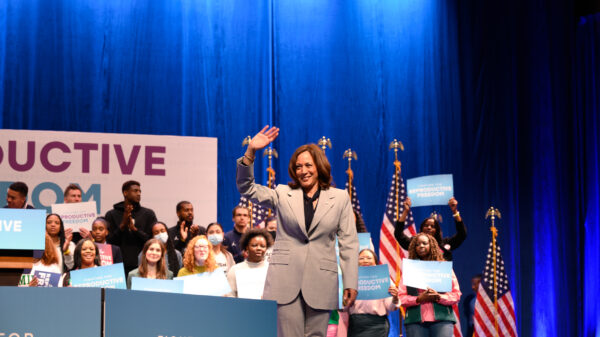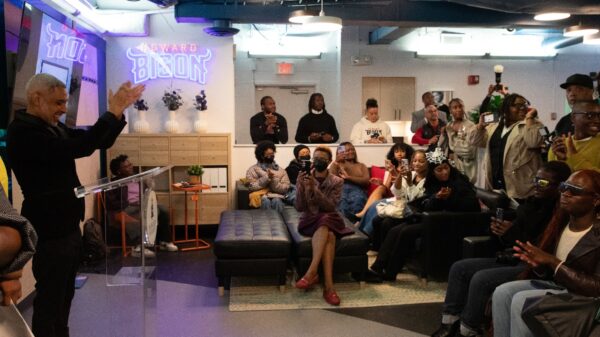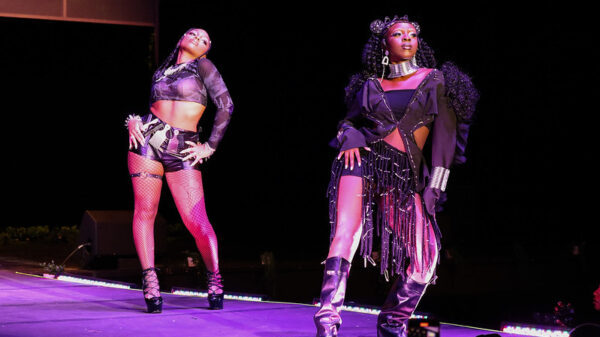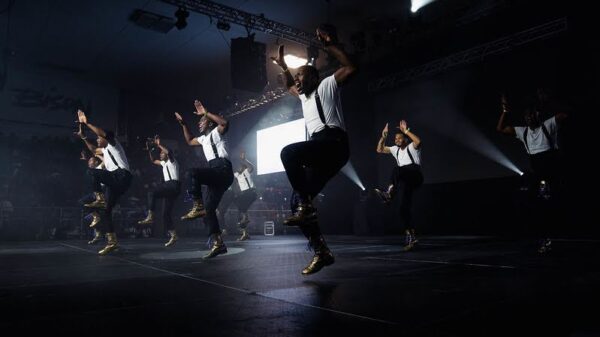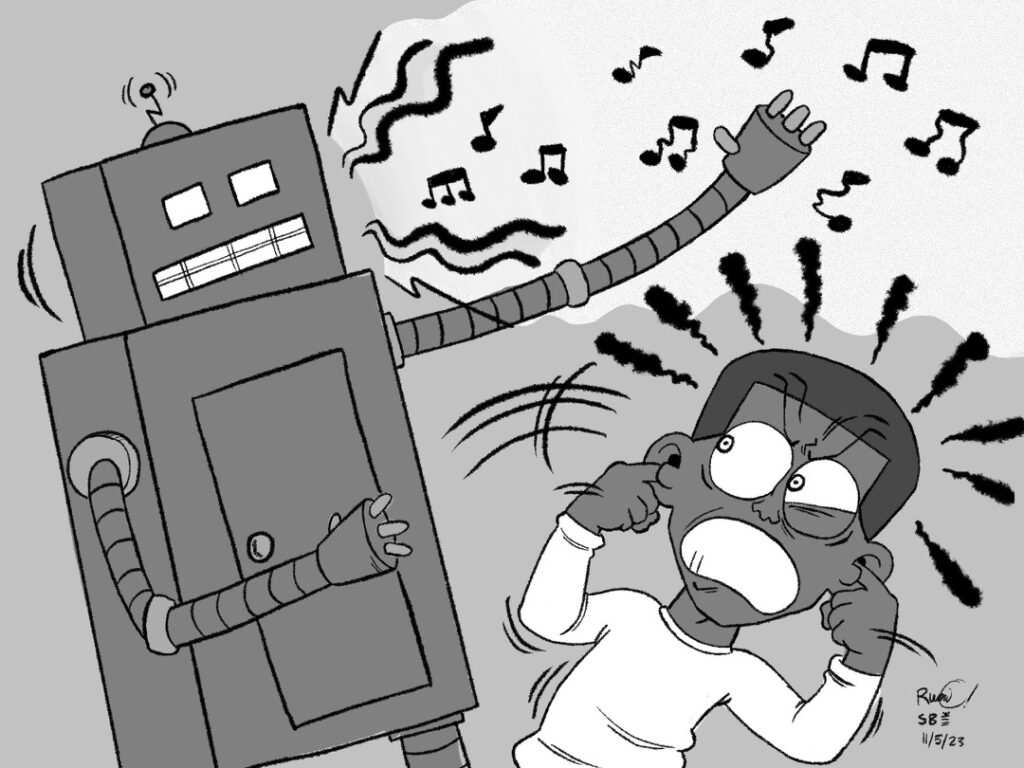
This year has seen extreme growth and success for artificial intelligence, with over 7,000 AI tools and counting being developed and utilized by consumers. However, AI hovers as an enigmatic threat on the horizon of creative industries, sitting at the crossroads of disruption and ethical concerns.
In the music industry, companies like Splice, MusicFlow, and Soundraw utilize AI to automate processes such as writing songs, producing beats and even replicating artists’ vocals to sing or rap.
Although the quality of the product may worsen, this arrangement reduces payroll expenses for record labels, as they won’t need to hire individuals to complete these tasks.
This approach can seem more attractive, as the music industry has experienced extensive widespread workforce layoffs due to a slowed economy and lower consumer spending since the pandemic.
Popular music streaming companies such as Soundcloud and Spotify, to record labels like Warner Music Group all conducted layoffs, some cutting up to 20 percent of their workforce.
In reference to their 270 layoffs earlier this year, CEO of Warner Music Group Robert Kyncl stated that they needed to make “hard choices in order to evolve.”
It seems as if this evolution may come at the expense of creative entrepreneurs in the music industry. To the dismay of many artists, songwriters and producers, some top music industry executives seem hopeful for the integration of AI into the processes of creating music.
Lyor Cohen, CEO of YouTube Music is currently working with music industry partners to develop and integrate AI and artist programming, in hopes that “humans and machines can usher in an undeniable era of sound,” in a Drink Champs interview published by Revolt last month.
As executives begin to embrace this new future, reasonable unrest and pushback follow from those who prioritize human creativity. From a loss of an authentic connection with fans to copyright and ownership issues, the list of possible issues that may arise as AI integration in the music industry continues to grow.
Aisha June, a senior marketing major and journalism, TV and film minor from Chicago, as well as a Howard artist, talked about her concerns about AI sneaking its way into the music creation process.
“The threat of AI being able to take somebody’s voice and make a song threatens the position of need for actual artists if it’s used with no restraints,” she said. “People could end up selling their voices in a way that is being taken advantage of. It isn’t something that should replace an artist or producer.”
Music Business Executive and Director of the Warner Music/Blavatnik Center for Music Business at Howard, Professor Jasmine Young, spoke to how the recording industry should mitigate workforce displacement as it incorporates AI into its business models.
“I think that labels should consider the ethical value and monetization of the AI structure,” Young said. “AI should not win over the actual artist and their creativity.” She believes that AI is a tool to be used for the advancement of the music industry and humanity as a whole.
As companies further incorporate AI into their business models, it is crucial to uphold ethical principles and preserve the value of human nature throughout the process.
Zuri Franklin, junior honors psychology major and human development minor from Washington, D.C, better known as musical artist cupidshotzuri on Howard’s campus, touched on his position on an ethical integration of AI into the music industry.
“I am hopeful, but there must be regulations…from the perspective of an artist and creative, an AI can never do our work,” Franklin said. “Record labels don’t care about the art but the money. If that is persistent, I doubt there would be an ethical resolve. I hope for there to be some ethical balance, but knowing how the music industry is, I feel like it can be wishful thinking.”
Consumers hold strong opinions about the integration of AI into their music consumption process as well. Disqo, a customer experience platform dedicated to providing insights and measurements, reported that “listener perceptions are strongly impacted by knowledge of a song’s origins…learning that a song is AI-generated…a little more than half of consumers said that they would enjoy it less.”
Gideon Boaten, a senior finance major from St. Louis, Missouri, and a Howard artist agreed.
“I will enjoy a song less if it’s created by AI because there’s nothing like authentic art made by a human being,” Boaten said, adding that making an AI song is just “using someone else’s voice without permission.”
Copy edited by Alana Matthew


